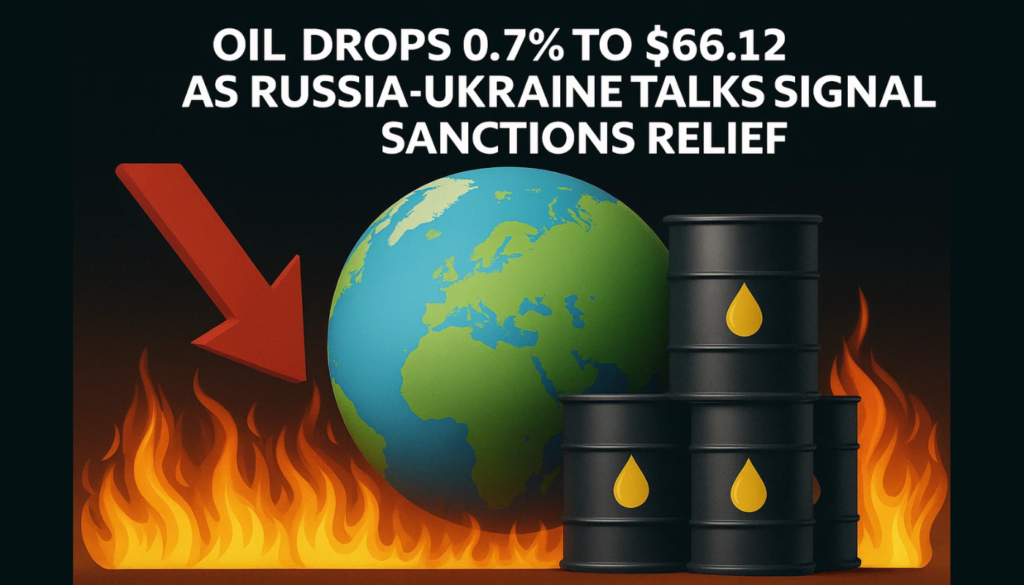Oil prices slipped on Tuesday as the prospect of sanctions easing on Russian crude weighed on markets. The shift followed renewed dialogue between the U.S., Ukraine, and Russia, which raised expectations for a potential increase in global supply.
By 08:20 GMT, Brent crude fell 48 cents, or 0.72%, to $66.12 per barrel. U.S. West Texas Intermediate (WTI) for September delivery declined 40 cents, or 0.63%, to $63.02 ahead of its contract expiration. The more actively traded October WTI contract slid 46 cents, or 0.73%, to $62.24.
This pullback came after prices settled nearly 1% higher in the previous session, reflecting the market’s heightened sensitivity to any diplomatic signals that could reshape global oil flows.
Trump Pushes for Putin-Zelensky Meeting
The pressure on crude markets intensified after U.S. President Donald Trump disclosed that he had spoken with Russian President Vladimir Putin, following talks with Ukrainian President Volodymyr Zelensky and European allies in Washington.
Trump said arrangements were underway for a direct meeting between Putin and Zelensky, with the possibility of a trilateral summit also on the horizon. Energy analysts suggested this raised the likelihood of de-escalation in Europe’s largest conflict since World War II.
Suvro Sarkar, lead energy analyst at DBS Bank, noted:
- Oil markets are responding directly to the recent flurry of diplomacy.
- While no ceasefire has been achieved, the chances of additional sanctions appear reduced.
- Trump’s softened stance on secondary sanctions targeting Russian oil importers has lowered fears of global supply disruptions.
The combination of these factors has encouraged traders to reassess risk premiums that had been built into crude prices over the past year.
Market Targets Lower Price Levels
Zelensky described his discussions with Trump as “very good,” pointing to U.S. security guarantees, though the scope of support remains vague. Still, concerns linger among Kyiv and its allies that Washington could press for an agreement favoring Russian terms.
Bart Melek, head of commodity strategy at TD Securities, said in a client note that if tensions continue to ease, crude could retreat further:
- A reduction in sanctions risk would remove upward pressure on prices.
- Oil could drift toward $58 per barrel in Q4 2025 or Q1 2026 under TD’s forecasts.
For now, traders are bracing for a period of volatility, with short-term price swings likely tied to diplomatic headlines.


